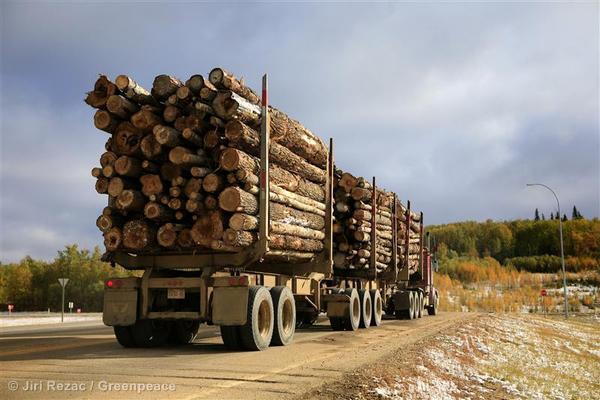A new report out today finds that using forest timber (biomass) for heating, electricity generation or liquid ‘biofuel’ could severely harm forests and accelerate global warming.
The report titled, Fuelling a Biomess, and authored by Greenpeace Canada, points to scientific evidence showing how using forests for energy can be worse for the climate than burning coal.
The US is set to overtake Canada as the world’s biggest exporter of wood pellets, which are used in power plants and burnt instead of fossil fuels.
The report recommends:
- Using woody biomass for energy production should be restricted to a local, small-scale use of mill residues.
- Approval of new wood-based bioenergy projects should cease, pending public hearings, a full accounting of the life-cycle climate and biodiversity footprints, and a re-thinking of government policies.
You can read a complete version of the report here: Fueling a Biomess, burning trees for energy puts Canadian forests and climate at risk.
[Note: a big warm hello to all the DeSmog readers! Been a while since I have written here, but I think I have the time to do so now.]
Subscribe to our newsletter
Stay up to date with DeSmog news and alerts







